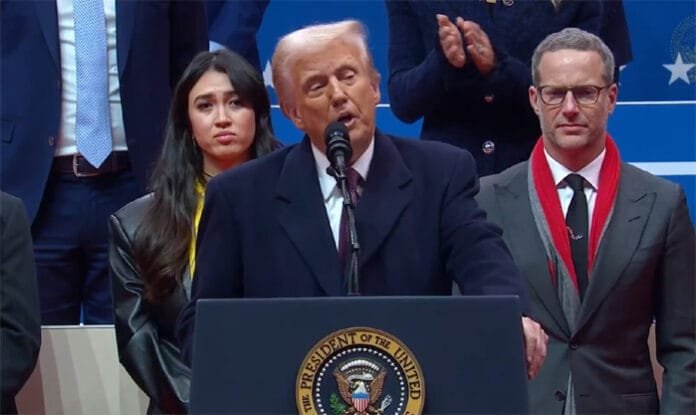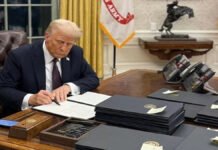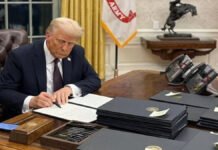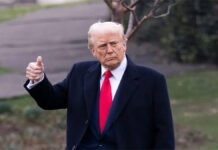Donald Trump’s latest executive order on strict screening of Muslims in America has sparked widespread debate and concern both within the United States and globally. This controversial decision, targeting foreign nationals from Muslim-majority countries, has triggered fears of heightened Islamophobia and raised tensions internationally. From Washington to London and throughout the Middle East, the implications of this move are being analyzed with growing apprehension.
A Stricter Order Than Before
The executive order, signed shortly after Trump’s return to office, builds upon the policies introduced during his first term, including the infamous 2017 travel ban. This time, however, the regulations go further, emphasizing rigorous scrutiny of individuals from Muslim-majority countries and stipulating conditions for respecting “American values and culture.” The order notably targets pro-Palestinian activists and students, a move that has drawn sharp criticism from human rights organizations.
Critics have described this measure as draconian, suggesting that it places undue burden on individuals based solely on their religious or cultural backgrounds. Many fear that this policy will be used to unfairly discriminate against those seeking refuge, education, or employment in the United States.
Repercussions in Arab Nations
The Arab world has expressed significant unease regarding this policy. Several governments and advocacy groups within the region believe that Trump’s actions could strain relations between the United States and its Middle Eastern allies. Countries heavily reliant on trade and diplomatic ties with the U.S. are apprehensive about how this policy might impact economic cooperation and regional stability.
Human rights activists in these nations warn that this policy could exacerbate anti-American sentiment among populations already frustrated by perceived Western interference in the region. Additionally, the move raises concerns about the treatment of Muslim immigrants and students in the U.S., many of whom contribute significantly to American universities and industries.
Rising Concerns in the United Kingdom
The ripple effects of Trump’s decision are not confined to American borders. In the United Kingdom, this policy has sparked anxiety among its large Muslim population. Prime Minister Keir Starmer expressed reservations about the potential implications of the order on British citizens traveling to the U.S. or on those with familial ties in Muslim-majority nations.
British Muslims fear that this decision could embolden Islamophobic rhetoric across Europe. Taxi drivers, small business owners, and professionals in cities like Birmingham and London have voiced concerns that Trump’s stance might worsen the already precarious situation for Muslims in Western societies. Azmat Khan, a British Pakistani resident, remarked, “Policies like these fan the flames of division, making life harder for everyday Muslims trying to live peacefully.”
Islamophobia: A Growing Threat
Trump’s executive order has reignited discussions about Islamophobia, a global issue that remains deeply entrenched in many societies. By singling out individuals based on their religion and country of origin, the order risks fueling stereotypes and prejudices that have long plagued Muslim communities.
Global Backlash
Internationally, Trump’s decision has been met with widespread condemnation. Human rights organizations, including Amnesty International and Human Rights Watch, have criticized the order as a violation of fundamental freedoms. Many governments in Muslim-majority countries are now reassessing their diplomatic and trade relationships with the U.S., fearing the long-term implications of this policy.
The move has also reignited debates within the United Nations about the responsibility of member states to uphold principles of equality and nondiscrimination. Several U.N. officials have expressed concern about the potential for such policies to undermine global efforts to combat intolerance and promote inclusivity.
















